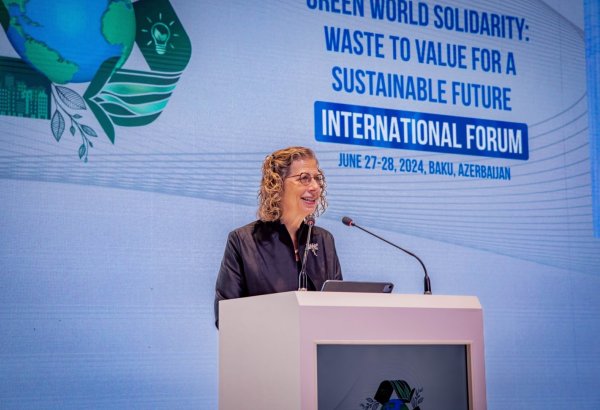BAKU, Azerbaijan, October 28. In its latest Emissions Gap Report, United Nations Environment Program (UNEP) highlights that while 90 percent of Paris Agreement signatories have updated or replaced their initial Nationally Determined Contributions (NDCs), most of this progress occurred before the 2021 COP26 summit, TurkicWorld reports.
Despite repeated calls to strengthen 2030 climate targets in recent COP sessions, only one nation has enhanced its target since COP28, underscoring a global stagnation in climate ambition.
The report projects that under current policies, global greenhouse gas emissions in 2030 will reach 57 gigatons of CO2 equivalent (GtCO2e)—a slight increase over last year’s projection and 2 GtCO2e above the levels outlined by countries' unconditional NDCs. When compared to conditional NDCs, the gap widens further, reaching approximately 5 GtCO2e. UNEP warns that without a decisive acceleration in policy implementation, the gap in achieving 2030 goals remains virtually unchanged from the previous year’s assessment.
The G20, responsible for the majority of global emissions, is particularly off-course. UNEP’s findings indicate that the group collectively will likely overshoot their NDC targets by 1 GtCO2e under current policies. Eleven G20 members are on track to miss their 2030 targets, and those projected to meet them have largely maintained or only slightly raised their ambitions in recent NDC updates. UNEP underscores that the G20’s collective targets fall well short of the reductions needed to align with the global warming limits of 1.5°C and 2°C.
Achieving the 2030 targets, UNEP asserts, demands both the adoption of additional, more stringent policies across all sectors and a focused assessment of their impacts on future emissions. Despite advancements in climate policy, few studies evaluate the effects of these policies on projected 2030 emissions, making it difficult to gauge the potential impact of new climate initiatives adopted by the G20 between June 2023 and June 2024.
The report emphasizes that without strengthened commitments and accelerated policy measures, the world’s ability to meet its 2030 climate goals—and limit global warming—remains in critical jeopardy.




















